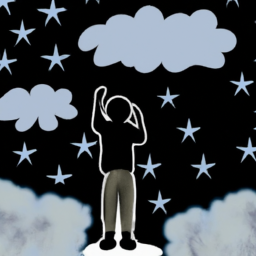Cannabis is a popular recreational drug and many people use it to relax and relieve stress. At the same time, you might become so dependent on it that you have to keep taking it to stave off withdrawal symptoms. In such people with excessive marijuana consumption, quitting suddenly can cause severe side effects. To understand and manage cannabis withdrawal symptoms, it is important to understand the symptoms and the potential treatments.
Cannabis withdrawal symptoms usually manifest when heavy, prolonged consumption of this substance is interrupted or significantly reduced. Common symptoms include feeling anxious or depressed, irritability and restlessness, sleep problems, decreased appetite, nausea, and physical discomfort. These symptoms usually start within the first few days of quitting and can last for up to two weeks.
Most cannabis withdrawal symptoms are mild and resolve without treatment or with conservative interventions like exercise, relaxation techniques, and adequate sleep. However, some people who use marijuana can feel some very uncomfortable side effects, especially when using marijuana products with high THC concentrations, such as edibles or concentrates.
It is important to note that marijuana is not considered to be an addictive substance. Many people say that 'it's not addictive.' Some cannabis researchers, on the other hand, describe serious withdrawal symptoms that can include aggression, anger, anxiety, depression, irritability, craving, restlessness, sleep problems, and decreased appetite, which may indicate an addiction or dependence.
If you are experiencing any of these symptoms, it is important to seek help from a medical professional who can help you understand and manage your symptoms. They may recommend medications, such as antidepressants, to help reduce the intensity of the withdrawal symptoms. It is also important to practice self-care, such as eating healthy, exercising, meditating, and getting enough rest.
In addition, lifestyle changes can help manage cannabis withdrawal symptoms. For example, it can be helpful to cut back on or avoid caffeine and alcohol, as these substances can make the symptoms worse. It is also important to stay away from other drugs, as they can exacerbate the withdrawal symptoms.
If you find yourself in a situation where you cannot quit using marijuana, it is important to speak to a doctor or therapist and get help. They can help you identify the underlying causes of your addiction and work with you to develop a plan to reduce your consumption.
It is also important to talk to your doctor about any mental health conditions you may have, such as depression or anxiety. These conditions can make cannabis withdrawal more difficult and can also lead to increased use of the substance. It is important to be open and honest with your doctor about your mental health so that they can provide the best possible treatment.
It is also important to be aware of any physical or cognitive changes you experience when quitting marijuana. Desouza says cannabis addiction is defined as use that is out of control either in terms of spending money or time getting high or recovering from its effects. Be aware of any physical or cognitive changes you experience when quitting marijuana.
Finally, there are new technologies being developed to help people in recovery from marijuana addiction. A Home Sensor for Nighttime Opioid Withdrawal? People in treatment and recovery from opioid use disorder (OUD) often suffer from sleep problems, and a new home-based sensor could help them monitor and manage their withdrawal symptoms. The device is designed to detect changes in heart rate, respiration, and body movement during the night, which can indicate whether the person is experiencing withdrawal symptoms.
In addition, new research is looking into the long-term effects of marijuana use. For example, smoking marijuana may do more damage to lungs than cigarettes, and studies have shown that it can affect memory and cognition. It is important to be aware of the potential risks associated with using marijuana and to be aware of the potential withdrawal symptoms if you decide to quit.
Finally, it is important to keep in mind that marijuana is often used in combination with other drugs. For example, fentanyl appears more likely to cause severe withdrawal symptoms for people who use it in combination with marijuana. If you are using marijuana with other drugs, it is important to be aware of the potential risks and to speak to a doctor or therapist if you are experiencing withdrawal symptoms.
Managing cannabis withdrawal symptoms can be difficult, but it is possible with the right support. It is important to be aware of the potential symptoms and to speak to a doctor or therapist if you are having difficulty quitting. With the right treatment, you can be successful in reducing your marijuana consumption and avoiding the uncomfortable withdrawal symptoms.
In conclusion, it is important to understand the potential risks associated with marijuana use and the potential withdrawal symptoms. It is also important to be open and honest with your doctor about your mental health and any physical or cognitive changes you experience when quitting marijuana. Finally, there are new technologies and treatments available to help people in recovery from marijuana addiction, so it is important to be aware of these as well.
